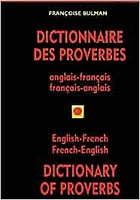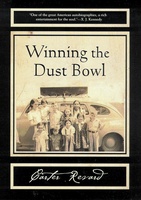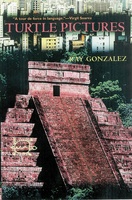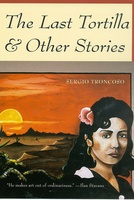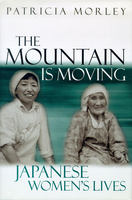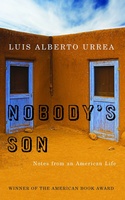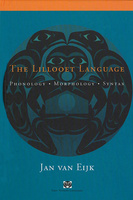Dictionnaire Des Proverbes / Dictionary of Proverbs
Anglais-Francais Francais-Anglais/English-French French-English
More than 1800 English, American, French and French-Canadian proverbs are gathered in this volume, with their equivalents in the other language.
Winning the Dust Bowl
Bootleggers and bankrobbers in the Oklahoma Dust Bowl. Proctors and punters at Oxford. Activists and agitators of the American Indian Movement. Carter Revard has known them all, and in this book a memoir in prose and poetry he interweaves the many threads of his life as only a gifted writer can.
Winning the Dust Bowl traces Revard's development from a poor Oklahoma farm boy during the depths of the Depression to a respected medieval scholar and outstanding Native American poet. It recounts his search for a personal and poetic voice, his struggle to keep and expand it, and his attempt to find ways of reconciling the disparate influences of his life.
In these pages, readers will find poems both new and familiar: poems of family and home, of loss and survival. In linking what he calls "cocooning" essays, Revard shares what he has noticed about how poems come into being, how changes in style arise from changes in life, and how language can be used to deal with one's relationship to the world. He also includes stories of Poncas and Osages, powwow stories and Oxford fables, and a gallery of photographs that capture images of his past.
Revard has crafted a book about poetry and authorship, about American history and culture. Lyrical in one breath and stingingly political in the next, he calls on his mastery of language to show us the undying connection between literature and life.
Killing Time with Strangers
Young Pal needs help with his dreaming. Palimony Blue Larue, a mixblood growing up in a small California town, suffers from a painful shyness and wants more than anything to be liked. That's why Mary Blue, his Nez Perce mother, has dreamed the weyekin, the spirit guide, to help her bring into the world the one lasting love her son needs to overcome the diffidence that runs so deep in his blood. The magical (and not totally competent) weyekin pops in and out of Pal's life at the most unexpected timesand in the most unlikely guisesbut seems to have difficulty setting him on the right path. Is there any hope for Palimony Blue? Don't ask his father, La Vent Larue; La Vent is past hope, past help, a city zoning planner and a pawn in the mayor's development plans who ends up crazy and in jail after he shoots the mayor in thewell, never mind. Better to ask Pal's mother, who summons the weyekin when she isn't working on a cradle board for Pal and his inevitable bride. And while you're at it, ask the women in Pal's life: Sally the preacher's daughter, Brandy the waitressing flautist, Tara the spoiled socialite. And be sure to ask Amanda, if you can catch her. If you can dream her. Using comic vision to address serious concerns of living, Penn has written a freewheeling novel that will surpass most readers' expectations of "ethnic fiction." Instead of the usual polemics, it's marked by a sense of humor and a playfulness of language that springs directly from Native American oral tradition. What more can be said about a book that has to be read to the end in order to get to the beginning? That Killing Time with Strangers is unlike any novel you have read before? Or perhaps that it is agonizingly familiar, giving us glimpses of a young man finding his precarious way in life? But when the power of dreaming is unleashed, time becomes negotiable and life's joys and sorrows go up for grabs. And as sure as yellow butterflies will morph into Post-It notes, you will know you have experienced a new and utterly captivating way of looking at the world.
Throwing Fire at the Sun, Water at the Moon
Perhaps you know them for their deer dances or for their rich Easter ceremonies, or perhaps only from the writings of anthropologists or of Carlos Castaneda. But now you can come to know the Yaqui Indians in a whole new way.
Anita Endrezze, born in California of a Yaqui father and a European mother, has written a multilayered work that interweaves personal, mythical, and historical views of the Yaqui people. Throwing Fire at the Sun, Water at the Moon is a blend of ancient myths, poetry, journal extracts, short stories, and essays that tell her people's story from the early 1500s to the present, and her family's story over the past five generations. Reproductions of Endrezze's paintings add an additional dimension to her story and illuminate it with striking visual imagery.
Endrezze has combed history and legend to gather stories of her immediate family and her mythical ancient family, the two converging in the spirit of storytelling. She tells Aztec and Yaqui creation stories, tales of witches and seductresses, with recurring motifs from both Yaqui and Chicano culture. She shows how Christianity has deeply infused Yaqui beliefs, sharing poems about the Flood and stories of a Yaqui Jesus. She re-creates the coming of the Spaniards through the works of such historical personages as Andrés Pérez de Ribas. And finally she tells of those individuals who carry the Yaqui spirit into the present day. People like the Esperanza sisters, her grandmothers, and others balance characters like Coyote Woman and the Virgin of Guadalupe to show that Yaqui women are especially important as carriers of their culture.
Greater than the sum of its parts, Endrezze's work is a new kind of family history that features a startling use of language to invoke a people and their past--a time capsule with a female soul. Written to enable her to understand more about her ancestors and to pass this understanding on to her own children, Throwing Fire at the Sun, Water at the Moon helps us gain insight not only into Yaqui culture but into ourselves as well.
Turtle Pictures
The rhythm of vision, the rhythm of dream, the rhythm of voices saturating the hot southwestern landscape. These are the rhythms of Ray Gonzalez, the haunting incantations of Turtle Pictures.
Gonzalez has forged a new Chicano manifesto, a cultural memoir that traces both his personal journey and the communal journey that ...
The Last Tortilla
"She asked me if I liked them. And what could I say? They were wonderful." From the very beginning of Sergio Troncoso's celebrated story "Angie Luna," we know we are in the hands of a gifted storyteller.
Born of Mexican immigrants, raised in El Paso, and now living in New York City, Troncoso has a rare knack for celebrating life. Writing in a straightforward, light-handed style reminiscent of Grace Paley and Raymond Carver, he spins charming tales that reflect his experiences in two worlds.
Troncoso's El Paso is a normal town where common people who happen to be Mexican eat, sleep, fall in love, and undergo epiphanies just like everyone else. His tales are coming-of-age stories from the Mexican-American border, stories of the working class, stories of those coping with the trials of growing old in a rapidly changing society. He also explores New York with vignettes of life in the big city, capturing its loneliness and danger.
Beginning with Troncoso's widely acclaimed story "Angie Luna," the tale of a feverish love affair in which a young man rediscovers his Mexican heritage and learns how much love can hurt, these stories delve into the many dimensions of the human condition. We watch boys playing a game that begins innocently but takes a dangerous turn. We see an old Anglo woman befriending her Mexican gardener because both are lonely. We witness a man terrorized in his New York apartment, taking solace in memories of lost love.
Two new stories will be welcomed by Troncoso's readers. "My Life in the City" relates a transplanted Texan's yearning for companionship in New York, while "The Last Tortilla" returns to the Southwest to explore family strains after a mother's death--and the secret behind that death. Each reflects an insight about the human heart that has already established the author's work in literary circles.
Troncoso sets aside the polemics about social discomfort sometimes found in contemporary Chicano writing and focuses instead on the moral and intellectual lives of his characters. The twelve stories gathered here form a richly textured tapestry that adds to our understanding of what it is to be human.
The Mountain Is Moving
Japanese Women's Lives
The Mountain Is Moving describes postwar Japanese society and the roles that women are expected to play within it.
Nobody's Son
Here's a story about a family that comes from Tijuana and settles into the 'hood, hoping for the American Dream.
. . . I'm not saying it's our story. I'm not saying it isn't. It might be yours. "How do you tell a story that cannot be told?" writes Luis Alberto Urrea in this potent memoir of a childhood divided. Born in Tijuana to a Mexican father and an Anglo mother from Staten Island, Urrea moved to San Diego when he was three. His childhood was a mix of opposites, a clash of cultures and languages. In prose that seethes with energy and crackles with dark humor, Urrea tells a story that is both troubling and wildly entertaining.
Urrea endured violence and fear in the black and Mexican barrio of his youth. But the true battlefield was inside his home, where his parents waged daily war over their son's ethnicity. "You are not a Mexican!" his mother once screamed at him. "Why can't you be called Louis instead of Luis?" He suffers disease and abuse and he learns brutal lessons about machismo. But there are gentler moments as well: a simple interlude with his father, sitting on the back of a bakery truck; witnessing the ultimate gesture of tenderness between the godparents who taught him the magical power of love.
"I am nobody's son. I am everybody's brother," writes Urrea. His story is unique, but it is not unlike thousands of other stories being played out across the United States, stories of other Americans who have waged warboth in the political arena and in their own homesto claim their own personal and cultural identity. It is a story of what it means to belong to a nation that is sometimes painfully multicultural, where even the language both separates and unites us. Brutally honest and deeply moving, Nobody's Son is a testament to the borders that divide us all.
The Lillooet Language
Phonology, Morphology, Syntax
This timely book is the first complete descriptive grammar of Lillooet, an indigenous Canadian language spoken in British Columbia, now threatened with extinction.
Hungarian Rhapsodies
Essays on Ethnicity, Identity, and Culture
From an examination of photographer Andre Kertesz to a visit to a Hungarian-American church in Cleveland, Richard Teleky reconciles contemporary identity with a heritage from another country.

